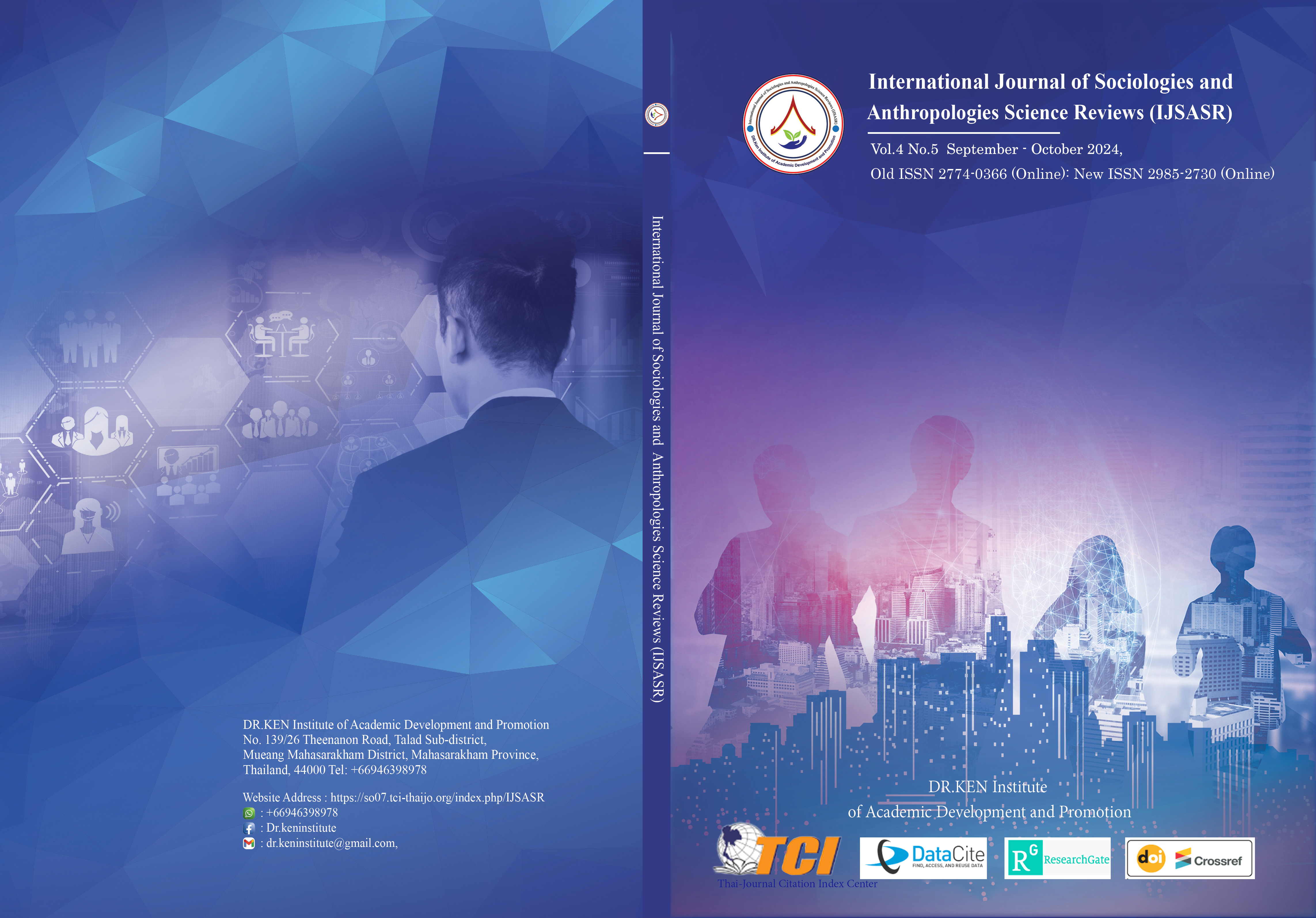Implementation of Ideological and Political Theory Course Based on Problem-Based Learning Combined with Small Private Online Course teaching model to Enhance Learning Achievement and Citizenship of Chinese College Students
Main Article Content
Abstract
Background and Aim: Problem-based learning is a kind of targeted and practical learning for students to solve real problems. In the problem design stage, the design of problem scenarios is the core of problem-based learning. The concept of Small Private Online Course (SPOC) was first proposed by Professor Armando Fox, director of MOOC Lab at the University of California, Berkeley, and is abbreviated for Small Private Online Course. In this study, Problem-Based Learning combined with a Small Private Online teaching model were combined to generate a new teaching model. This teaching model emphasizes the role of the problem in the teaching process. Learning throughout the course is an open and dynamic system that can be adapted and improved based on feedback. The purpose of this study was; 1) To compare students’ learning achievement before and after learning through ideological moral and legal basic courses based on problem-based learning combined with the Small Private Online Course (SPOC) teaching model and 2) To compare citizenship of Chinese college students before and after learning through ideological and political theory course based on problem-based learning and Small Private Online Course (SPOC) teaching model.
Materials and methods: In this experimental study, 50 students (one class) from Xi’an University were investigated. This study used test and self-evaluation forms given to students before and after learning through ideological and political theory education based on problem-based learning combined with small private online (SPOC). Data were collected and analyzed by means, standard deviation, and dependent sample t-test.
Results: The results of the learning achievement before and after learning based on problem-based learning and small private online (SPOC) on ideological and political theory course, it was found that the mean scores of pretests of students’ learning achievement were 13.31(SD=6.860) and mean scores of posttests were 17.32 (SD=7.197). The post-test score of students' learning achievement was higher than that of the pre-test score at.01 level of significance. Moreover, the results of citizenship of Chinese college students found that the mean scores of pretests of citizen self-evaluation scores were 35.42 (SD=9.338) and the mean scores of posttests were 44.18 (SD=9.736). The posttest scores of citizenships of Chinese college students were higher than that of the pretest scores at.01 level of significance.
Conclusion: The developed ideological and political theory course based on problem-based learning combined with small private online (SPOC) has a significant effect on improving the learning achievement and citizenship of Chinese college students.
Article Details

This work is licensed under a Creative Commons Attribution-NonCommercial-NoDerivatives 4.0 International License.
Copyright on any article in the International Journal of Sociologies and Anthropologies Science Reviews is retained by the author(s) under the under the Creative Commons Attribution-NonCommercial-NoDerivatives 4.0 International License. Permission to use text, content, images, etc. of publication. Any user to read, download, copy, distribute, print, search, or link to the full texts of articles, crawl them for indexing, pass them as data to software, or use them for any other lawful purpose. But do not use it for commercial use or with the intent to benefit any business.

References
Bian, H.P. (2011). Paths to transform the “ideological and moral cultivation and law basis” course’s textbook advantages into teaching strengths. Ideological Education Research,
Chen, Q.Y. (2011). Exploration and application of the teaching mode of the problem Center. Basic education. 8(3), 35-42.
Chen, R.& Yang, C. (2015). Study on SPOC. Distance education in China.
He, B., & Cao, Y. (2015). SPOC: Teaching process innovation based on MOOC. China's audio-visual education.
Kang, Y. Q (2014). Online education "post-MOOC era" - SPOC analysis. Tsinghua University Education Research Institute. 35(1), 85-9.
Liu, W.P. (2015). The application of SPOC in ideological and Political Theory Teaching in Universities. School party building and ideological education.
Schunk, D. H. (1989). Self-efficacy and achievement behaviors. Educational Psychological Review. 1, 173-208.
Ye, F. (2011). The evolution of citizenship identity and the concept of civic education. Higher education research.
Yu, C. (2016). Thinking about improving students' enthusiasm to participate in SPOC network learning. Journal of The Industry and Technology Forum.
Zhang, H. (2014). The flipped classroom teaching reform of ideological and political courses for college students. Academic Monthly of Education.






